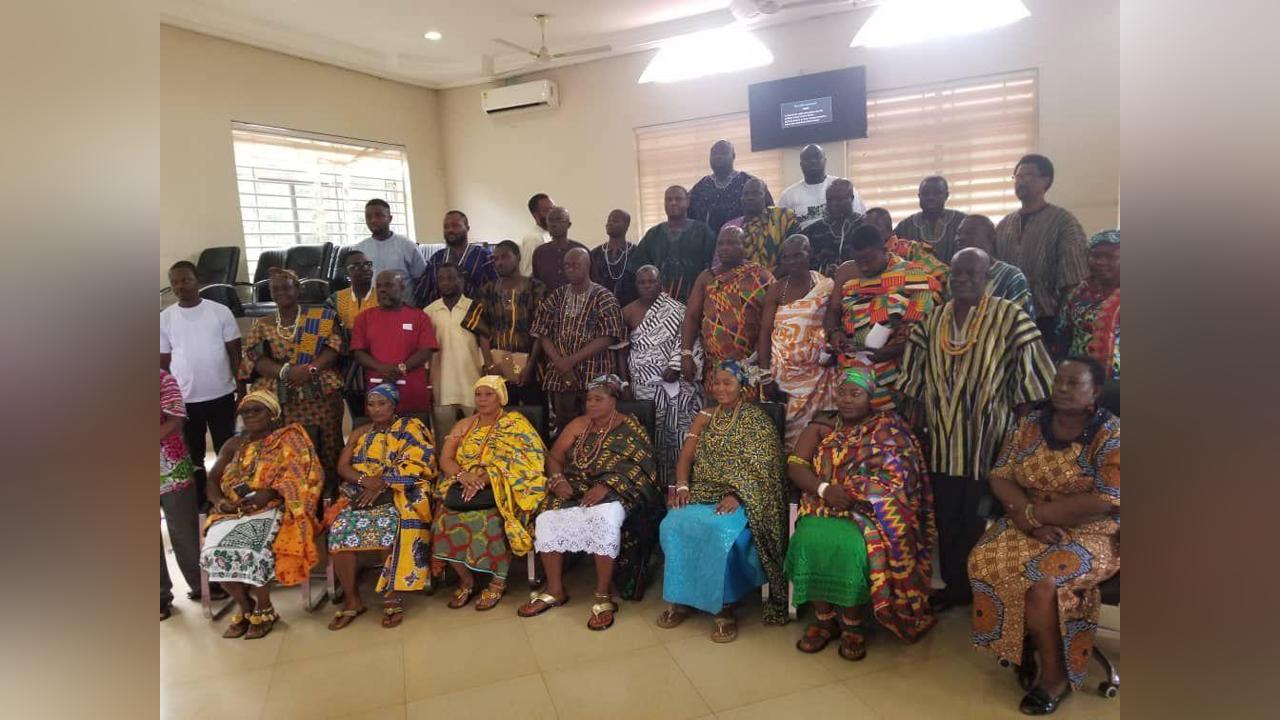Africa-Press – Ghana. The Greater Accra Regional Department of Gender, in collaboration with the Greater Accra Regional Coordinating Council, has sensitised more than 60 traditional leaders on the risks and negative impacts of harmful cultural practices.
The programme, sponsored by the United Nations Population Fund (UNFPA), is aimed at breaking the silence on harmful cultural practices such as child marriage, Female Genital Mutilation (FGM), widowhood inheritance, forced feeding of girls, trokosi, and breast ironing, among others.
The event was participated in by the Ada, Kpone, Ningo, Shai, Osudoku, and Prampram Traditional Councils.
Madam Matilda Banfro, the Greater Accra Regional Director of the Department of Gender, explained that harmful cultural practices were the customs, traditions or behaviours that cause physical or emotional harm, discrimination or rights violations.
Madam Banfro explained that harmful practices such as child marriage, widowhood rights, FGM, human trafficking, child abuse and other related gender-based violence activities continue to affect communities, particularly women and girls, stressing that these practices were often deeply rooted in tradition, religion and community norms, making them complex to challenge and eliminate.
She emphasised that traditional leaders play a crucial role in shaping societal norms and values; therefore, working closely with them was pivotal to dismantling harmful norms from within, saying, “Traditional councils continue to play a central role in shaping community values and preserving cultural identity.”
The Regional Gender Director noted that a key contributing factor was the absence of active engagement and accountability among leaders who have authority to influence policies, shape public discourse and implement meaningful change within their jurisdictions.
Ms. Juliana Abbeyquaye, Eastern Regional Director of the Department of Gender, explained that harmful cultural practices were actions rooted in tradition that deny individuals, especially women and children, their dignity, integrity, and basic human rights.
These practices, she said, were often imposed without full, free, and informed consent.
Ms. Abbeyquaye explained that breast ironing was the use of heated or hard objects to flatten a girl’s developing breasts, usually to delay sexual attention or marriage, saying that the practice was hidden, causing serious health issues such as pain, infections, and permanent breast damage.
She therefore urged communities to work together to end outdated customs and replace them with ones that protect the dignity, safety, and rights of all.
Some key findings that emerged during the programme were that deep-rooted taboos like silence around sexuality or FGM create stigma, preventing open discussion and access to services. Also, harmful cultural practices like FGM or child marriage were frequently underreported due to stigma and secrecy.
Participants also noted that modern institutions were increasingly assuming roles once held by traditional authorities, leading to a weakening of customary leadership and influence among others.
The traditional leaders recommended that there was the need to establish a traditional leaders’ working group to regularly deliberate on cultural reform, support traditional councils with legal literacy on human rights and national policies, integrate positive cultural practices into advocacy, encourage traditional leaders to publicly denounce harmful practices and endorse alternative rituals, among others.
For More News And Analysis About Ghana Follow Africa-Press







